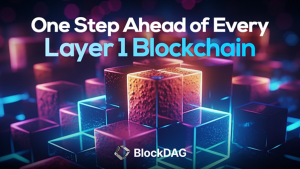On Wednesday Robinhood announced the launch of dollar cost averaging (DCA) for its Bitcoin derivative product.
On Wednesday Robinhood announced the launch of dollar cost averaging (DCA) for its Bitcoin derivative product.
The firm claims the new recurring Bitcoin and crypto investment tool has been added to help investors habitually save, but it appears it is also an attempt to encourage DCA to smooth market volatility on the platform, and to win over Bitcoiners with their own language.
Last year Robinhood defined dollar cost averaging: “Investing your money gradually at regular intervals, regardless of where market prices stand, helps smooth out the volatility. The idea is you won’t make as much as you might, but you won’t lose as much as you might either.”
The definition published on September 8th reads similarly, but since last year Robinhood has proven to be an extremely untrustworthy exchange to buy and sell anything by repeatedly halting trades on assets when the price makes a run to the upside.
What is perhaps worse is that the company continues to deceive thousands of people into thinking that they are buying Bitcoin, when in fact they are buying an IOU for a dollar price of Bitcoin.
There is no Bitcoin on the Robinhood platform. There are no Bitcoin private keys or withdrawals integrated in the platform. It is unclear whether there ever will be. Robinhood does not buy Bitcoin to match its customers’ trades, and it is unclear how much Bitcoin the firm holds on its customers behalf, if any.
Robinhood outright lied about the status of its Bitcoin price exposure product in its dollar cost averaging rollout announcement: “At Robinhood, if you place an order and spend $100 to buy bitcoin, you’ll get $100 worth of bitcoin. Period.”
This is untrue. If one spends $100 to buy Bitcoin on Robinhood and the platform isn’t experiencing daily maintenance or a trading halt, one will receive an IOU for some amount of a Bitcoin price exposure derivative, which they will eventually have to liquidate and pay taxes on.
Each Bitcoin “investment” on Robinhood must be liquidated to exit the platform in order to realize any gains made or to self custody, thereby triggering a taxable event. The platform is untenable for anyone who wants to hold real Bitcoin for even a short time, let alone the long-term hodling Bitcoin has historically rewarded.
Robinhood doesn’t allow for Bitcoin withdrawals, unfulfilled promises notwithstanding. The firm doesn’t encourage custodying your own wealth or property at all, but instead wants you to trust them to keep your funds where they can monitor, control, and sell bets against the data from your trading. Even traditional investing techniques on the platform are gamified, and access to margin is irresponsibly pitched as a level one can achieve. The platform succeeds by preying on high time preference and short term gratification and referral rewards, basically through destigmatizing functional gambling addictions.
The rollout of dollar cost averaging is a weak attempt at winning over Bitcoiners or would-be Bitcoiners with their own language. There was nothing stopping people from investing in the second order Bitcoin IOU’s at regular intervals on the platform before, outside of its random trade restrictions “due to market conditions”.
The monetary incentive the firm pitched this week is low fees for dollar cost averaging. It is unclear whether one can dollar cost average the Bitcoin derivatives even through the frequent “maintenance” trading halts or outright trading suspensions Robinhood carries out.
Robinhood is the opposite of what Bitcoin is about. The whole platform relies on the very trust it betrays time and time again. The fact remains that when it comes to where you should buy Bitcoin, the Robinhood platform is, if not the last place, then the very last.






















